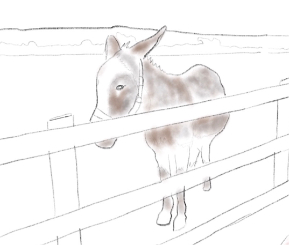End of Life Care is care that helps all those with advanced, progressive, incurable illness to live as well as possible until they die.
Palliative Care is an approach that improves the quality of life of patients and their families facing the problem associated with life-threatening illness.

Our services
Patients are seen in their own home or in the Community Hospitals
Assessments include:
- Consideration of preferred place of care
- Spirituality needs
- Equipment requirements
Our interpretation of the referral along with our assessment guides the implementation of appropriate treatment pathways:
- Managing symptoms
- Setting up and managing syringe driving
- Assessment for and provision of equipment
- End of Life Plan
- Advanced Care Planning
- Consideration of Preferences and Options
- Tissue and organ donation
The people we see
End of Life Care is care that helps all those with advanced, progressive, incurable illness to live as well as possible until they die. Patients are approaching the end of their lives when they are likely to die within the next 12 months. This includes patients whose death is imminent (expected within a few hours or days) and also those with:
- Advanced, progressive, incurable conditions
- General frailty and co-existing conditions that mean they are expected to die within 12months
- Existing conditions if they are at risk of dying from a sudden acute crisis in their condition
- Life threatening acute conditions caused by sudden catastrophic events
Palliative Care is an approach that improves the quality of life of patients and their families facing the problem associated with life-threatening illness, through prevention and relief of suffering by means of early identification and impeccable assessment and treatment of pain and other problems: physical, psychosocial and spiritual.
New patients
Referrals can be made by healthcare professionals to include:
- GPs
- Hospital staff
- Nursing and residential homes
- Social Services
What you should have when we see you
It is helpful when we visit you if you can show us any documents that you have completed relating to your Palliative and End of Life care eg.
- Advanced Care Directive
- End of Life Plan
- Preferred Place of Care
Frequently asked questions
- Why have I been referred?
-
You have been referred by your health professional because you have some symptoms or problems relating to your care that we can help with.
- Who is Martha?
-
Our donkey logo was created to help with the recognition of our end of life and palliative care resources and services.
The donkey is used in agriculture to protect other animals from predators and is a symbol of humility and peace; they are kind natured, gentle and intelligent.
The logo was created by a donkey lover as a sketch from a photograph of Martha, (also known as Minty) who lives in Wales.
Where are we?
Palliative and End of Life Care for all patients in Shropshire, Telford & Wrekin should be accessed via:
Single Point of Referral
- Telford and Wrekin Community Health Services
Tel: 01952 580328
Halesfield 6
Halesfield
Telford
Shropshire
TF7 4BF
Contact us
Contact us
All referrals should be directed to Single point of referral at:
Single Point of Referral
Tel: 01952 607788
Nurse Consultant
Lead clinician EOL Care
Post vacant
Lead GP EOL Care
Post vacant
Who are we?
Palliative and End of Life care is provided every day by all clinicians and carers. Patients are seen in their own home or in the Community Hospitals
Useful links
Service documents
- Adults EOL Strategy 2021-2024 2068-67683
- Palliative & EOL Care Strategy - Children's
- Palliative and End Of Life Care Strategy for Children and Young People 2069-59863
- Palliative and EOL Care - Adults - Strategy on a Page
- Shropshire End of Life Plan and Prescribing Guidance
